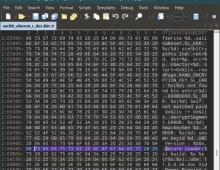
U.S. DoJ Indicts 12 Russian Intelligence Officers for Hacking Offenses Related to the 2016 Election
The U.S. Department of Justice on Friday announced charges against 12 Russian intelligence officers for hacking offenses during the 2016 presidential election.
The DoJ announced that a grand jury in the District of Columbia returned an indictment presented by the Special Counsel's Office. The indictment charges twelve Russian nationals for committing federal crimes that were intended to interfere with the 2016 U.S. presidential election. All twelve defendants are members of the GRU, a Russian Federation intelligence agency within the Main Intelligence Directorate of the Russian military. These GRU officers, in their official capacities, engaged in a sustained effort to hack into the computer networks of the Democratic Congressional Campaign Committee, the Democratic National Committee, and the presidential campaign of Hillary Clinton, and released that information on the internet under the names "DCLeaks" and "Guccifer 2.0" and through another entity.
According to the allegations in the indictment, Viktor Borisovich Netyksho, Boris Alekseyevich Antonov, Dmitriy Sergeyevich Badin, Ivan Sergeyevich Yermakov, Aleksey Viktorovich Lukashev, Sergey Aleksandrovich Morgachev, Nikolay Yuryevich Kozachek, Pavel Vyacheslavovich Yershov, Artem Andreyevich Malyshev, Aleksandr Vladimirovich Osadchuk, Aleksey Aleksandrovich Potemkin, and Anatoliy Sergeyevich Kovalev were officials in Unit 26165 and Unit 74455 of the Russian government's Main Intelligence Directorate.
In 2016, officials in Unit 26165 began spearphishing volunteers and employees of the presidential campaign of Hillary Clinton, including the campaign's chairman. Through that process, officials in this unit were able to steal the usernames and passwords for numerous individuals and use those credentials to steal email content and hack into other computers. They also were able to hack into the computer networks of the Democratic Congressional Campaign Committee (DCCC) and the Democratic National Committee (DNC) through these spearphishing techniques to steal emails and documents, covertly monitor the computer activity of dozens of employees, and implant hundreds of files of malicious computer code to steal passwords and maintain access to these networks.
The officials in Unit 26165 coordinated with officials in Unit 74455 to plan the release of the stolen documents for the purpose of interfering with the 2016 presidential election. Defendants registered the domain DCLeaks.com and later staged the release of thousands of stolen emails and documents through that website. On the website, defendants claimed to be "American hacktivists" and used Facebook accounts with fictitious names and Twitter accounts to promote the website. After public accusations that the Russian government was behind the hacking of DNC and DCCC computers, defendants created the fictitious persona Guccifer 2.0. On the evening of June 15, 2016 between 4:19PM and 4:56PM, defendants used their Moscow-based server to search for a series of English words and phrases that later appeared in Guccifer 2.0's first blog post falsely claiming to be a lone Romanian hacker responsible for the hacks in the hopes of undermining the allegations of Russian involvement.
Members of Unit 74455 also conspired to hack into the computers of state boards of elections, secretaries of state, and US companies that supplied software and other technology related to the administration of elections to steal voter data stored on those computers.
To avoid detection, defendants used false identities while using a network of computers located around the world, including the United States, paid for with cryptocurrency through mining bitcoin and other means intended to obscure the origin of the funds. This funding structure supported their efforts to buy key accounts, servers, and domains. For example, the same bitcoin mining operation that funded the registration payment for DCLeaks.com also funded the servers and domains used in the spearphishing campaign.





















